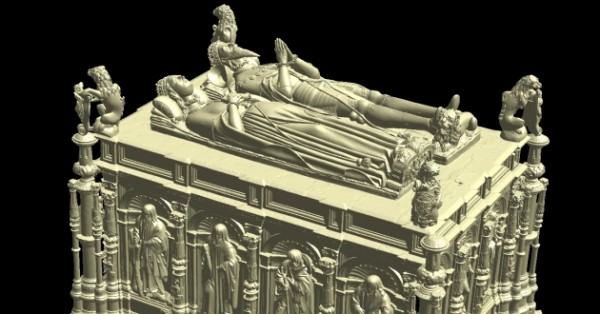3D documentation: Current Practice and future potential
David Arnold, Director of Research Initiatives and Dean of the Brighton Doctoral College
David Arnold’s research interests lie in the conception of ICT tools that fundamentally empower new forms of enquiry and communication about cultural heritage. Experience in the adoption of technologies in other spheres suggests that this is a multi-facetted challenge, starting from the fundamental difficulties of discussing potential applications across disciplinary cultures and hence of perceiving meaningful applications in the fast-paced change that characterises technological development. The challenges then involve addressing the practical issues of making tools usable and relevant to a variety of professional situations and working practices and ultimately to develop new paradigms for the use and communication of digital cultural heritage data, whether to analyse research questions or to communicate with and entertain the public.
In the Cultural Informatics Research Group we believe that to achieve our goals we must embed collaboration with museums archives and other heritage organisations within our work and to that end we have had active collaborations with both international icons in museums (including the Victoria and Albert Museum, The Louvre Museum, the Academia Museum in Florence, the Royal Belgium Museum, The Rijksmuseum and the Berlin State museum) and in archaeological sites (e.g. the temples of Abu Simbel and UNESCO World Heritage Sites in Cyprus, as well as the UNESCO World Heritage HQ in Paris). We work with these organisations and others to test prototype technologies and to develop new models of sustainable enterprises.
In this talk I will cover three aspects of work in this area:
(i) The State of the Art in 3D collections – not only the 3D digital surrogate but also its metadata, digital provenance and the relationship to elements such as Europeana. This will also involve discussing the new potential of digital resources across the Museums, Libraries and Archives arenas and the potential for new research questions and methods built on such resources.
(ii) Based on extensive experience of deploying 3D documentation in operational workflows, the practical implications for heritage organisations seeking to embed 3D as one of their documentation tools will be discussed, including cost implications, training needs and organisational challenges
(iii) The estimation of Socio-economic impact – the challenges of Heritage Institutions presenting the value of heritage and the additionality of 3D to demonstrate and deliver strategic planning for their funders and in opening new opportunities and contributions to sustainability.
Speaker Biography
Professor David Arnold MA, PhD, FBCS, CEng, CITP is Director of Research Initiatives and Dean of the Brighton Doctoral College. As head of Brighton’s Cultural Informatics Research Group his research interests lie in the area of technologies supporting the documentation, analysis and use of digital cultural heritage data. In parallel to these roles he has been the coordinator of two large EU projects since 2002, with a total contribution of over €16M. The latest “Tools and Expertise for 3D Collection Formation” (www.3d-coform.eu) involves 19 partners and is due to complete in Nov 2012.
David holds an MA (1976, Engineering and Computer Science) and PhD (1978, Architecture) from the Centre for Land Use and Built Form Studies at Cambridge, and was at UEA, Norwich, from 1978-2002, being elected Dean in 1986 and promoted to Professor in 1989. In 2002 he joined the University of Brighton as Dean of the Faculty of Management and Information Sciences.
Professor Arnold is a Chartered Engineer, a Chartered Information Technology Professional, a member of the UK Computing Research Committee (UKCRC). He is also a Fellow of the British Computer Society (FBCS) and the EUROGRAPHICS Association of which he is a past chairman. He was the founding editor-in-chief of the ACM Journal on Computing and Cultural Heritage (JOCCH) and the AHRC Peer Review College.









